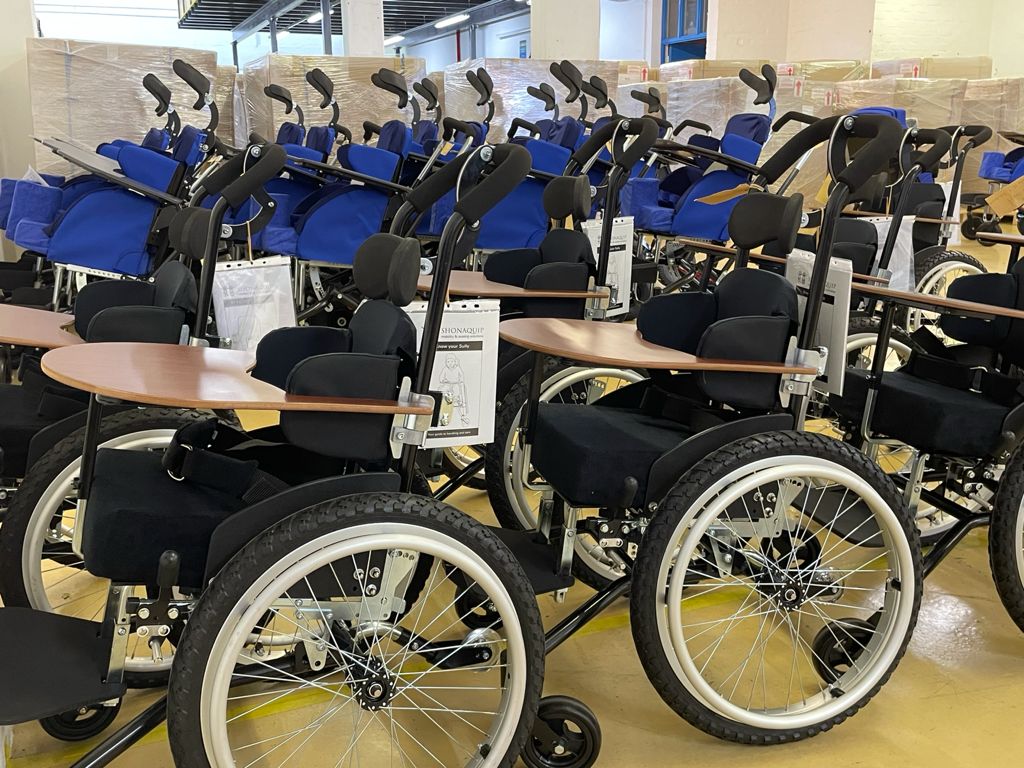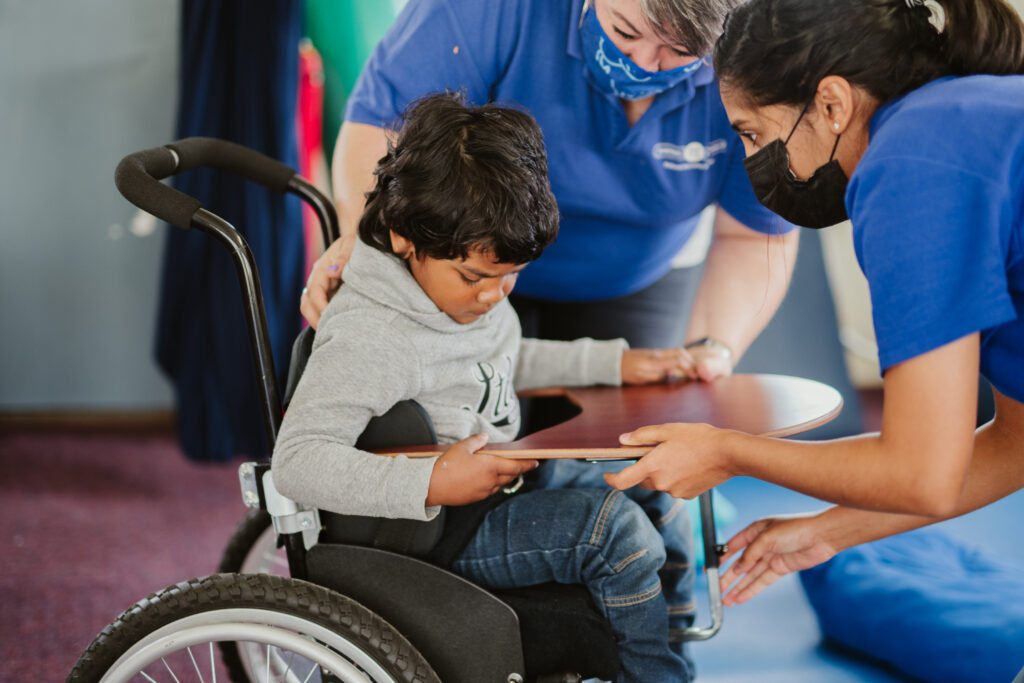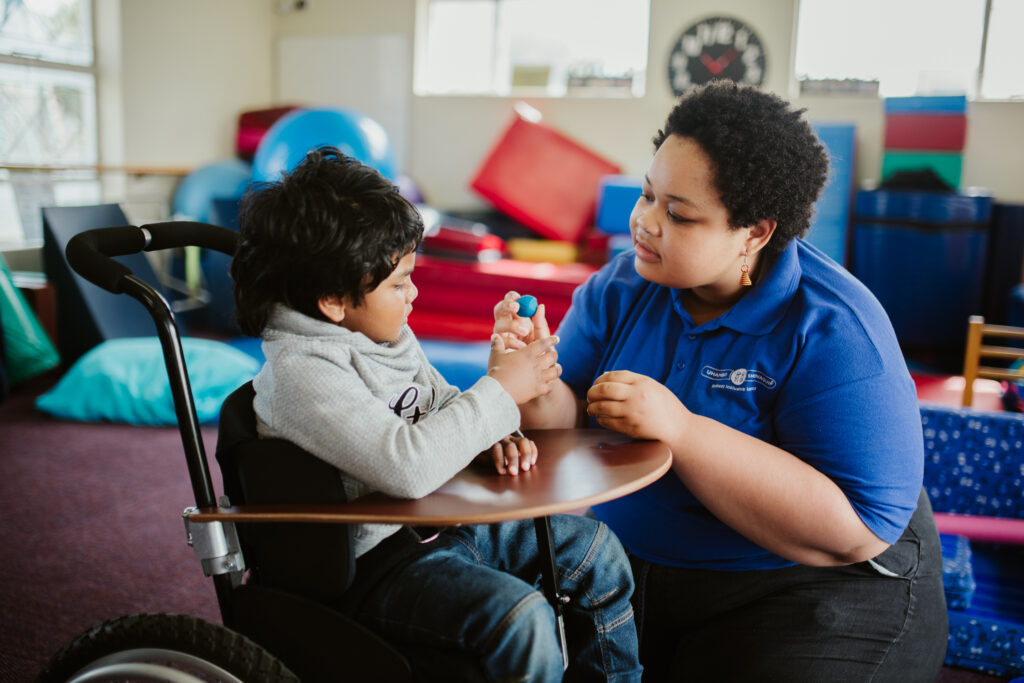Africa’s Business Heroes (ABH) Prize Competition, a flagship philanthropic initiative sponsored by the Jack Ma Foundation and Alibaba Philanthropy, just announced the Top 3 winners of the 2022 ABH awards for talented African entrepreneurs selected from 21,000 applications from all 54 African countries this year.
South Africa has been participating since inception of ABH in 2019, but this year is the first time South African entrepreneurs ended up in the Top 10 and both won each 100,000 grants plus a 10,000 USD top up received by each participant making a total of US$220,000 for both. This is a call to more South African start-ups to participate in upcoming editions to reap from the benefits of this grant & training opportunity.
Ms. Shona Mcdonald, Founder and Executive Director of Shonaquip Social Enterprise was one of South African entrepreneurs that emerged among top 10 winners in a pan-African entrepreneurship competition. The winners were chosen from a pool of over 21,000 applications received from all 54 countries in Africa, after several rounds of rigorous evaluation conducted by over 230 judges for 7 months. All the Top 10 entrepreneurs are truly inspiring and are a testament to the talent, resilience, innovation, and passion of African entrepreneurs.








Let’s start with what you would tell other female entrepreneurs who might be apprehensive about entering such competitions such as Africa’s Business Heroes (ABH)?
If you have spent time lying awake at night with an insatiable desire to solve a problem and have found ways to turn that solution into a business, then don’t hesitate to explore every opportunity you can find to promote and expand this business opportunity!
No matter what age you are or what gender you relate to, the Africa’s Business Heroes prize competition is something you should try to win. I felt so welcomed by everybody I met, experienced significant learnings, not just from the judges and coaches but from so many other participants who I had the opportunity to meet and engage with. I came away stronger, with a valuable new network, full of energy and hope for the future, with two new partnerships being negotiated and of course the prize money which will help grow our organisations impact and export opportunities.
Where did you hear about ABH from and what prompted you to enter?
I was sent the link by an international disability rights activist in the USA who is passionate about wheelchair provision and the work that we do and wants to see us expand our reach to many more countries in Africa.
Tell us about the journey you embarked on with ABH and what that looked like as the months went by?
The application process was simple and enabled me to tell my story. The WHY, the HOW and the overview of WHAT we do. As I progressed to the Top 50 and Top 20 there was far more focus on what I would call investor readiness; you will need to be prepared and ensure your financials are strong and up to date and that all your company’s governance, systems and processes are ready for sharing and well thought through. This competition demands your thought and attention, helps you focus on those areas of your business that often get left to one side as you push and address everyday demands. ABH provides a great opportunity to ensure all your business boxes are ticked and tidy, and opportunity to learn while you walk through the steps but be prepared to move fast and take this process seriously if you want to win.
How were you feeling?
Reflecting on 30+ years of running a business, being one of the first women to work in Medical Device manufacturing in South Africa, I realise how much easier it is now. The needs are so great, and the road is not only truly open to endless opportunities, but women are actively being encouraged to step up and walk that road with confidence.
I was excited to find how prepared we were, that the time we had devoted in ensuring our governance, systems and process were well thought out. Having taken time to invest in building my teams skills and formalising and documenting our progress meant everything was available to share. I felt that nothing we were asked to provide was unnecessary or requested with the wrong intention. The ABH organising team were extremely efficient, had entrepreneurship development at the centre of their planning and were as excited by the process of discovering innovative successful African businesses as we all were in building them.
Please tell us about your company and what you do exactly?
ShonaquipSE is Africa’s only ISO13485 Certified design manufacturer of paediatric wheelchairs and therapeutic equipment for children living in under resourced and rural areas. Since our inception in 1992, we have provided devices, services, and training to an estimated 650,000 people with disabilities, mainly in South and Southern Africa. ShonaquipSE is currently assisting over 18,300 direct beneficiaries per annum with Assistive Technology, tele-rehab, and outreach clinic services.
As an African woman owned and run enterprise, we have become the most trusted and recognised paediatric wheelchair brand in 7 surrounding countries and are now exporting our products as far as India and Eastern Europe. Our main clients are Government Ministries of Health, Education and Social Development through product and service provision tenders, international funding agencies like International Red Cross and private medical insurance and medical device providers. Our outreach seating clinics support families of children and adults with disabilities through providing improved access to rural and remote communities, and those living in informal settlements who have limited access to transport. These clinics provide user appropriate, locally manufactured modular wheelchairs and 24-hour posture support devices in partnership with government and INGO’s, effecting systemic change and empowerment for social inclusion through capacity building, advocacy and related ECD and social services.
ShonaquipSE’s professional team of seating therapists and technicians are acutely aware of the risks of supplying devices without upskilling the ecosystem around a child or adult with a disability. This is essential if impact is to be sustainable. Along with our WHO accredited training programmes we also raise awareness about disability and inclusion more broadly in the community, civil society, and business sectors, create opportunities for greater economic participation of people with disabilities. We are recognised service providers to the Valuable500 and committed to assisting other businesses become effective inclusive workspaces as 25% of our team have disabilities themselves.
Our training programmes are modular and flexible, delivered online or through a combination of online and in-person training sessions. Our skilled training facilitators are equipped with the knowledge and field experience to facilitate capacity building for parents, healthcare providers, educators and companies that provide service to people with disabilities and their families.
We are currently exploring new opportunities for export distribution partners in Eastern Europe, MENA and South America
Does your company only have presence in South Africa, and if not, where else and why those countries?
To clarify those mentioned above are Botswana, Eswatini, Georgia, India, Lesotho, Mozambique, Namibia, South Africa, Uganda, and Zimbabwe.
With the US$100K grant money you’ve received – what do you plan on doing with it? Tell us how the future looks like from here?
We have outgrown our existing space and are now relocating to larger premises. Our prize money will be invested in building our Business Development team and securing distribution partners, searching for, and setting up an E-commerce platform and most recently taking our discussion with partners in Ethiopia and Egypt forward as we expand our reach and impact to more countries. Finally, we will continue to innovate and find simple, affordable, and reliable solutions for people with disabilities who experience daily barriers to accessing their very basic rights to education, health services and work opportunities.
